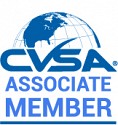OCTOBER 1, 2002
Introducing the Owner-Operator's Business Association of Canada (OBAC)
Throughout most of the early part of 2002, a group of dedicated individuals has been meeting on a regular basis to put the finishing touches on an organization dedicated to serving the needs of trucking owner-operators across Canada. The organization was incorporated under the name, The Owner-Operator's Business Association of Canada (OBAC), in March, but the roots of the organization date back to January/February 2000.
Then, skyrocketing diesel fuel prices drew national attention to the many problems facing owner-operators, but specifically: poorly written (or non-existent) business contracts between them and carriers which left rates for hauling freight the same, while the cost of doing business escalated.
Although the fuel crisis was an issue of common concern, which galvanized owner-operators across the country, they had no vehicle through which they could speak with a unified voice to discuss issues or bring forward concerns, no internal communications network, and no resources to work effectively toward change.
This situation led to attempts in several provinces to organize associations or lobby groups, which met with varying degrees of success in the different jurisdictions. In most cases, though, the organizers were looking beyond their local groups to the concept of a national association, or a network of provincial groups under a national umbrella, to give owner-operators a stronger, more united voice.
In the spring of 2000, Industry Canada officials met with the presidents of the National Truckers Association (NTA), Canadian Owner-Operators' Cooperative (Co-Op), along with representatives of Canadian Auto Workers union, Teamsters, the Quebec (provincial) truckers union, and others. Industry Canada agreed to consult with other stakeholders on the feasibility of undertaking a formal study.
By May 2000, Industry Canada had consulted with stakeholders, including other federal departments, provincial government officials and a number of industry associations, to gain a better understanding of the issues and possible courses of action. A study was not perceived as a viable option; issues were well known, and resources could be more effectively directed at finding solutions. Industry Canada encouraged owner-operators to seek ways to address their business issues directly, rather through government intervention, and supported the concept of a strong national industry association.
Meetings and discussions continued through the end of 2000, and by February 2001, Industry Canada had agreed to host a symposium in Toronto, which brought together individuals and fledgling organizations from across the country to determine if there was any interest outside Ontario to establish a national association along the lines being discussed with NTA and the Ontario government. The group was able to reach consensus that a national association or alliance of organizations was a priority. They provisionally named the national organization the National Truckers Alliance of Canada (NTAC), and agreed to function as a Steering Committee to design the organization and develop a plan for its implementation.
With no resources to function as a proper "steering committee," the group relied on the good will and volunteer efforts of individuals, and there followed several months of consultation and self-examination as they grappled with the issue of how best to structure a national association and to define the group's Mandate and develop its Goals and Objectives. Both Industry Canada and Ontario's Ministry of Economic Development and Trade (MEDT), now known as the Ministry of Enterprise, Opportunity, and Innovation (EOI), made commitments to support the group with seed money for start-up, provided they could satisfy a number of conditions and deliverables, including incorporation, and a solid strategic plan.
By agreeing to offer one-time start-up assistance to this fledgling effort, both Industry Canada and the Ontario's MEOI, have placed their support with the thousands of owner-operators across Canada who work largely without any back-up from the industry at large. Although the motor carriers and shippers maintain associations to address their own issues, owner-operators have been reluctant to embrace a forum that would discuss, debate and then advocate on their behalf.
They have been disappointed too many times, and so have earned the right to be suspicious of well-meaning advocates who promise them everything but deliver very little. It is OBAC's intention to overcome this resistance by demonstrating the advantages of a common cause, non-confrontational approach to the issues facing the nation's trucking sub-contractors.
It's in the nature of owner-operators to 'go it alone.' That's the attitude of resilience, resourcefulness and, indeed, courage which marks the truly independent among the trucking professionals in this country. Many operators know that they could earn as good or better a living as employee drivers but still choose 'to take the hard road'. But the hard way doesn't have to be the inefficient or unprofitable way since profitability shouldn't depend entirely on working longer or harder. There are methods and strategies being employed in all modern commercial enterprises, which many hard-working owner-operators may not be aware. These common business practices are the foundation for sound decision-making, crucial to the success of any endeavour. Owner-operators can minimize their exposure to financial risk if they have the proper tools with which to manage their businesses. They contribute significantly to the modern industrial economy. It's because of them that OBAC was formed.
OBAC has identified several key areas where owner-operators could benefit from the Association's expertise. These can be divided into matters regarding business and financial issues, transport regulatory and compliance issues, operational decisions and public image concerns.
Education is the key here. OBAC has committed to taking a leading role for its members in providing access to the most relevant information available to enhance their financial position and to broaden their understanding of such issues as the Multi-Jurisdictional Vehicle Tax (MJVT), the International Registration Plan (IRP), and Workers Compensation issues, to name a few.
OBAC will also be conducting research and establishing focus groups which will investigate such matters as the cost of insurance, the nature of the typical carrier/owner-operator contract, the implications of the new hours-of-service regulations, the many opportunities that exist to form partnerships with groups such as the Canadian Trucking Human Resources Council and the role of a formal apprenticeship program in the industry. OBAC believes that recognition of apprentices in the trucking industry is a long overlooked aspect of the necessary training that every driver must undergo. Most owner-operators began their careers as company drivers and many company drivers cherish a dream to one day own their own trucks. With this in mind, OBAC will represent the interests of all drivers with a view toward those who eventually take that next step in their careers.
OBAC sees one of its largest roles as an advocate for the owner-operator community before government, industry, and the media. Owner-operators generally have not fared well in promoting their own interests. By establishing a voice that speaks for its members, despite their various individual activities.
OBAC will be establishing a website, which will provide members and the public with information about its activities. An on-line presence is considered crucial. With the increasing reliance on electronic data transfer, more owner-operators have access to the Internet than ever before. OBAC intends to offer them a site that will feature timely and relevant information, provide opportunities for on-line self-study, and establish links with government and industry sites. In addition, a monthly newsletter is being established which will be available by subscription and at truck stops throughout the country.
OBAC's initial presence will be at the two autumn truck shows, in Toronto in late September and in Abbotsford, BC, in early October. Owner-operators will have their first opportunity to meet OBAC representatives at these events. It is expected that vigourous discussions will take place as truckers decide whether to throw their support behind the OBAC.
We are fortunate to have secured the enthusiastic services of a Board of Directors drawn from across the country and from every part of the road transport community. These individuals are committed to establishing OBAC as the foremost group advocating on behalf of owner-operators in Canada. Through their efforts and with the growing participation of owner-operators, there will be added emphasis to OBAC's motto: On Your Own: But Not Alone!







